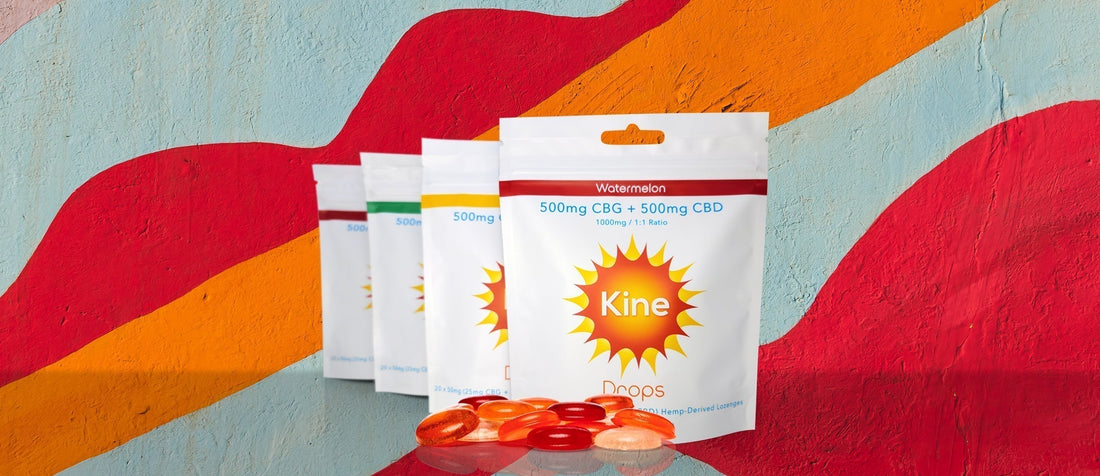CBD, or cannabidiol, has gained significant attention in recent years as a potential natural remedy for various health issues, particularly pain management. As more people seek alternative treatments to conventional pain medications, understanding how CBD may help with pain becomes increasingly important. This article delves into what CBD is, how it works, its possible benefits for pain relief, and considerations for use.
Understanding CBD
Commonly known as CBD, cannabidiol is one of over 100 compounds found in the cannabis plant. Unlike its well-known counterpart, THC (tetrahydrocannabinol), CBD does not produce the psychoactive effects commonly associated with cannabis use. Instead, CBD is celebrated for its potential therapeutic benefits without the "high."
How CBD Works
CBD interacts with the body's endocannabinoid system (ECS), a complex cell-signaling system involved in regulating various functions, including pain, mood, sleep, and immune response. The ECS comprises endocannabinoids, receptors, and enzymes.
CBD influences the ECS by:
- Modulating Receptors: CBD binds to and modulates receptors in the ECS, such as CB1 and CB2 receptors, which play roles in pain perception and inflammation.
- Enhancing Endocannabinoids: CBD may increase the levels of naturally occurring endocannabinoids in the body, helping to maintain balance and reduce pain.
- Anti-inflammatory Properties: CBD has been shown to possess anti-inflammatory properties, which may help reduce pain and swelling associated with various conditions.
Choosing the Right CBD Topical for Pain Relief: CBD Balm, CBD Cream, or CBD Lotion
CBD topicals come in different forms, each offering unique benefits depending on the type of pain and how you want the product to work. Understanding the differences between a balm, cream, and lotion may help you select the best option for your needs.
CBD Balm for Pain: Deep, Long-Lasting Relief
A CBD recovery balm has a thick, waxy consistency that is believed to offer deep penetration and long-lasting relief. Made with natural oils, beeswax, and high concentrations of CBD, our Kine Balm is believed to create a protective barrier over the skin, potentially allowing CBD to be absorbed gradually.
This slow absorption is believed to make balms the top choice for chronic pain, arthritis, sore muscles, and joint stiffness. Because of their dense texture, they stay on the skin longer, making them ideal for people needing sustained relief throughout the day.
Kine’s CBG/CBD Balm is formulated for powerful, targeted pain relief. Infused with a blend of cannabinoids, it is believed to ease discomfort, reduce inflammation, and support muscle recovery. This CBD balm stick for pain may be perfect for those looking for a natural alternative to over-the-counter pain relief products.
CBD Cream: Moderate Pain
CBD creams have a thick texture that is thought to absorb into the skin more quickly than balms, although they may still provide some relief in a pinch. Because a CBD cream for pain relief absorbs faster than a balm, it is thought to be more suited for mild or moderate pain. CBD cream for pain is not thought to provide the same level of lasting relief as a balm.
CBD Lotion: Light Relief
CBD lotions have the lightest consistency and are believed to absorb the fastest. They are water-based, making them easy to spread over large areas, but they also typically contain less CBD than balms or creams. A CBD lotion for pain may be helpful for mild discomfort, everyday aches, and skin hydration.
Why a CBD Balm for Pain is the Best Choice
A CBD balm is most likely the best choice for pain relief because it provides deep, long-lasting effects by slowly absorbing into the skin and penetrating muscles and joints. Unlike creams and lotions, which absorb more quickly and may require frequent reapplication, a balm stays on the skin longer. The balm creates a protective barrier that is believed to allow the CBD and other soothing ingredients to work over time.
Our balm’s oil-based formula also holds a higher concentration of CBD, which may make it ideal for those suffering from chronic pain, arthritis, sore muscles, and inflammation. Kine’s CBG/CBD Balm is specifically designed to deliver targeted, powerful relief, potentially combining the benefits of CBD, CBG, and natural anti-inflammatory ingredients for a more effective and lasting solution.
You may want to read more about how CBD and CBG are thought to work together in our blog posts: Combining Cannabinoids – The Benefits of Using CBD and CBG Together as well as What Is CBG Good For?
Benefits of Using a CBD Balm for Pain
Chronic Pain
One of the most common uses of CBD is for managing chronic pain. Studies have indicated that products like CBD oil for pain or CBD cream for pain can help alleviate chronic pain by impacting the endocannabinoid receptor activity, reducing inflammation, and interacting with neurotransmitters. Conditions such as arthritis, fibromyalgia, and multiple sclerosis may benefit from CBD use .
Acute Pain
CBD is also used for acute pain management. Whether it's post-surgical pain, injury-related pain, or pain from conditions like migraines, products like CBD drops for pain have been reported to provide relief. Its potential anti-inflammatory and analgesic properties make it an option for short-term pain relief without the risks associated with opioids.
Neuropathic Pain
Neuropathic pain, caused by nerve damage, can be particularly challenging to treat. CBD has shown promise in managing neuropathic pain by modulating the activity of the ECS and reducing nerve inflammation. This can be particularly beneficial for conditions like diabetes-induced neuropathy and sciatica.
How to Use CBD Balm for Pain
Using CBD balm for pain begins by cleaning the area where you plan to apply the balm to remove any dirt or oils that could block absorption. Take a small amount of the balm and warm it between your fingers to soften it, then gently massage it into the affected area using circular motions. Apply firm pressure to help the balm penetrate deeply into the skin and muscles. Allow the balm to fully absorb without wiping it off, and reapply as needed throughout the day. For best results, use the balm consistently and store it in a cool, dry place to maintain potency.
Who Should Avoid Using CBD for Pain?
Individuals who should avoid taking CBD include:
- Pregnant or Breastfeeding Women: There is limited research on the effects of CBD on unborn babies and infants.
- People with Certain Medical Conditions: Those with liver disease or low blood pressure should consult their doctor before using CBD.
- Individuals on Certain Medications: CBD can interact with various medications, including blood thinners and anti-seizure drugs. Always consult with a healthcare provider to avoid potential interactions.
Where Can I Buy a CBD Balm for Pain?
Finding high-quality CBD products is crucial for effective pain management. At Kine, we’re committed to providing the best CBD products to meet your needs. Here are some tips on how to find the best CBD with Kine:
- Check for Third-Party Testing: Ensure that the products you choose have been tested by independent labs. This guarantees purity, potency, and the absence of harmful substances.
- Look for Organic Ingredients: High-quality CBD products should be made from organically grown hemp, free from pesticides and synthetic additives.
- Read Customer Reviews: Feedback from other users can provide insights into the effectiveness and quality of the product.
- Consult with Experts: At Kine, our knowledgeable staff can help guide you in selecting the right CBD product for your specific pain management needs.
By choosing Kine, you can be confident in the quality and efficacy of your CBD products, ensuring you get the relief you need.
Find Pain Relief with CBD
CBD offers a promising alternative for pain management, with potential benefits for various types of pain, including chronic, acute, and neuropathic pain. By understanding how CBD works and considering the appropriate forms and dosages, individuals can explore this natural remedy to alleviate their pain effectively. As with any treatment, it's essential to approach CBD use with informed caution and professional guidance to achieve the best results.
For those looking to incorporate CBD into their pain management routine, choosing high-quality products is crucial. At Kine, we’re dedicated to providing top-tier CBD products that meet rigorous quality standards.
Ready to experience the potential benefits of CBD for pain relief? Visit Kine today and discover our range of high-quality, third-party tested CBD products.


